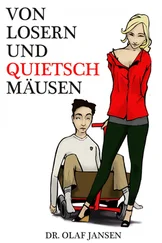Olaf Stapledon - Odd John
Здесь есть возможность читать онлайн «Olaf Stapledon - Odd John» весь текст электронной книги совершенно бесплатно (целиком полную версию без сокращений). В некоторых случаях можно слушать аудио, скачать через торрент в формате fb2 и присутствует краткое содержание. Город: London, Год выпуска: 2012, ISBN: 2012, Издательство: Hachette UK, Жанр: Фантастика и фэнтези, на английском языке. Описание произведения, (предисловие) а так же отзывы посетителей доступны на портале библиотеки ЛибКат.
- Название:Odd John
- Автор:
- Издательство:Hachette UK
- Жанр:
- Год:2012
- Город:London
- ISBN:9780450038570
- Рейтинг книги:5 / 5. Голосов: 1
-
Избранное:Добавить в избранное
- Отзывы:
-
Ваша оценка:
- 100
- 1
- 2
- 3
- 4
- 5
Odd John: краткое содержание, описание и аннотация
Предлагаем к чтению аннотацию, описание, краткое содержание или предисловие (зависит от того, что написал сам автор книги «Odd John»). Если вы не нашли необходимую информацию о книге — напишите в комментариях, мы постараемся отыскать её.
Odd John — читать онлайн бесплатно полную книгу (весь текст) целиком
Ниже представлен текст книги, разбитый по страницам. Система сохранения места последней прочитанной страницы, позволяет с удобством читать онлайн бесплатно книгу «Odd John», без необходимости каждый раз заново искать на чём Вы остановились. Поставьте закладку, и сможете в любой момент перейти на страницу, на которой закончили чтение.
Интервал:
Закладка:
The Captain, a grey-haired man in a peasant blouse, who seemed to me to be still inwardly watching the agony of the Civil War, brought us a flattering message from Moscow. We were invited to migrate to Russian territory, where, we were assured, we should be left free to manage our colony as we wished. We should be immune from persecution by the Capitalist Powers on account of our Communism and our sexual customs. While he was delivering himself of this speech, slowly, but in excellent English, a woman who was apparently one of his officers was making friendly advances to Sambo, who had crawled toward her to examine her boots. She smiled, and whispered a few endearments. When the Captain had finished, Sambo looked up at the woman and remarked. “Comrade, you have the wrong approach.” The Russians were taken aback, for Sambo was still in appearance an infant. “Yes,” said John, laughing, “Comrades, you have the wrong approach. Like you, we are Communists, but we are other things also. For you, Communism is the goal, but for us it is the beginning. For you the group is sacred, but for us it is only the pattern made up of individuals. Though we are Communists, we have reached beyond Communism to a new individualism. Our Communism is individualistic. In many ways we admire the achievements of the New Russia; but if we were to accept this offer we should very soon come into conflict with your Government. From our point of view it is better for our colony to be destroyed than to be enslaved by any alien Power.” At this point he began to speak in Russian, with great rapidity, sometimes turning to one or other of his companions for confirmation of his assertions. Once more the visitors were taken aback. They interjected remarks, they began arguing with each other. The discussion seemed to become heated.
Presently the whole company moved to the feeding terrace, where the visitors were given refreshments, and their psychological treatment was continued. As I cannot understand Russian I do not know what was said to them; but from their expressions I judged that they were greatly excited, and that, while some were roused to bewildered enthusiasm, others kept their heads so far as to recognize in these strange beings a real danger to their species and more particularly to the Revolution.
When the Russians departed, they were all thoroughly confused in mind. Subsequently, we learned from our telepathists that the Captain’s report to his Government had been so brief, self-contradictory and incredible, that he was relieved of his command on the score of insanity.
News that the Russian expedition had occurred, and that it had left the islanders in possession, confirmed the worst fears of the Powers. Obviously, the island was an outpost of Communism. Probably it was now a highly fortified base for naval and aerial attack upon Australia and New Zealand. The British Foreign Office redoubled its efforts to persuade the Pacific Powers to take prompt action together.
Meanwhile the incoherent stories of the crew of the Russian vessel had caused a flutter in the Kremlin. It had been intended that when the islanders had been transported to Russian territory the story of their persecution by Britain should be published in the Soviet Press. But such was the mystery of the whole matter that the authorities were at a loss, and decided to prevent all reference to the island.
At this point they received a diplomatic note protesting against their interference in an affair which concerned Britain alone. The party in the Soviet Government which was anxious to prove to the world that Russia was a respectable Power now gained the upper hand. The Russian reply to Britain was a request for permission to take part in the proposed international expedition. With grim satisfaction Britain granted the request.
Telepathically the islanders watched the little fleet converging on it from Asia and America. Near Pitcairn Island the vessels assembled. A few days later we saw a tuft of smoke on the horizon, then another, and others. Six vessels came into view, all heading toward us. They displayed the ensigns of Britain, France, the United States, Holland, Japan, and Russia; in fact, “the Pacific Powers.” When the vessels had come to anchor, each dispatched a motor-launch, bearing its national flag in the stern.
The fleet of launches crowded into the harbour. John received the visitors on the quay. Homo superior faced the little mob of Homo sapiens , and it was immediately evident that Homo superior was indeed the better man. It had been intended to effect a prompt arrest of all the islanders, but an odd little hitch occurred. The Englishman, who was to be spokesman, appeared to have forgotten his part. He stammered a few incoherent words, then turned for help to his neighbour the Frenchman. There followed an anxious whispered discussion, the rest of the party crowding round the central couple. The islanders watched in silence. Presently the Englishman came to the fore again, and began to speak, rather breathlessly. “In the name of the Governments of the Pacif —” He stopped, frowning distractedly and staring at John. The Frenchman stepped forward, but John now intervened. “Gentlemen,” he said, pointing, “let us move over to the shady end of that terrace. Some of you have evidently been affected by the sun.” He turned and strode away, the little flock following him obediently.
On the terrace, wine and cigars appeared. The Frenchman was about to accept, when the Japanese cried, “Do not take. It is perhaps drugged.” The Frenchman paused, withdrew his hand and smiled deprecatingly at Marianne, who was offering the refreshments. She set the tray on the table.
The Englishman now found his tongue, and blurted out in a most unofficial manner, “We’ve come to arrest you all. You’ll be treated decently, of course, Better start packing at once.”
John regarded him in silence for a moment, then said affably, “But please tell us, what is our offence, and your authority?”
Once more the unfortunate man found that the power of coherent speech had left him. He stammered something about “The Pacific Powers” and “boys and girls on the loose,” then turned plaintively to his colleagues for help. Babel ensued, for every one attempted to explain, and no one could express himself. John waited. Presently he began speaking. “While you find your speech,” he said, “I will tell you about our colony.” He went on to give an account of the whole venture. I noticed that he said almost nothing about the biological uniqueness of the islanders. He affirmed only that they were sensitive and freakish creatures who wanted to live their own life. Then he drew a contrast between the tragic state of the world and the idyllic life of the islanders. It was a consummate piece of pleading, but I knew that it was really of much less importance than the telepathic influence to which the visitors were all the while being subjected. Some of them were obviously deeply moved. They had been raised to an unaccustomed clarity and poignancy of experience. All sorts of latent and long-inhibited impulses came to life in them. They looked at John and his companions with new eyes, and at one another also.
When John had finished, the Frenchman poured himself out some wine. Begging the others to fill their glasses and drink to the colony, he made a short but eloquent speech, declaring that he recognized in the spirit of these young people something truly noble, something, indeed, almost French. If his Government had known the facts, it would not have participated in this attempt to suppress the little society. He submitted to his colleagues that the right course was for them all to leave the island and communicate with their Governments.
The wine was circulated and accepted by all, save one. Throughout John’s speech the Japanese representative had remained unmoved. Probably he had not understood well enough to feel the full force of John’s eloquence. Possibly, also, his Asiatic mind was not to be mastered telepathically by the same technique as that which applied to his colleagues. But the main source of his successful resistance, so John told me later, was almost certainly the influence of the terrible Hebridean infant, who, ever desiring to destroy John, had contrived to be telepathically present at this scene. I had seen John watching the Jap with an expression in which were blended amusement, anxiety and admiration. This dapper but rather formidable little man now rose to his feet, and said, “Gentlemen, you have been tricked. This lad and his companions have strange powers which Europe does not understand. But we understand. I have felt them. I have fought against them. I have not been tricked. I can see that these are not boys and girls; they are devils. If they are left, some day they will destroy us. The world will be for them, not for us. Gentlemen, we must obey our orders. In the name of the Pacific Powers I—I—” Confusion seized him.
Читать дальшеИнтервал:
Закладка:
Похожие книги на «Odd John»
Представляем Вашему вниманию похожие книги на «Odd John» списком для выбора. Мы отобрали схожую по названию и смыслу литературу в надежде предоставить читателям больше вариантов отыскать новые, интересные, ещё непрочитанные произведения.
Обсуждение, отзывы о книге «Odd John» и просто собственные мнения читателей. Оставьте ваши комментарии, напишите, что Вы думаете о произведении, его смысле или главных героях. Укажите что конкретно понравилось, а что нет, и почему Вы так считаете.












